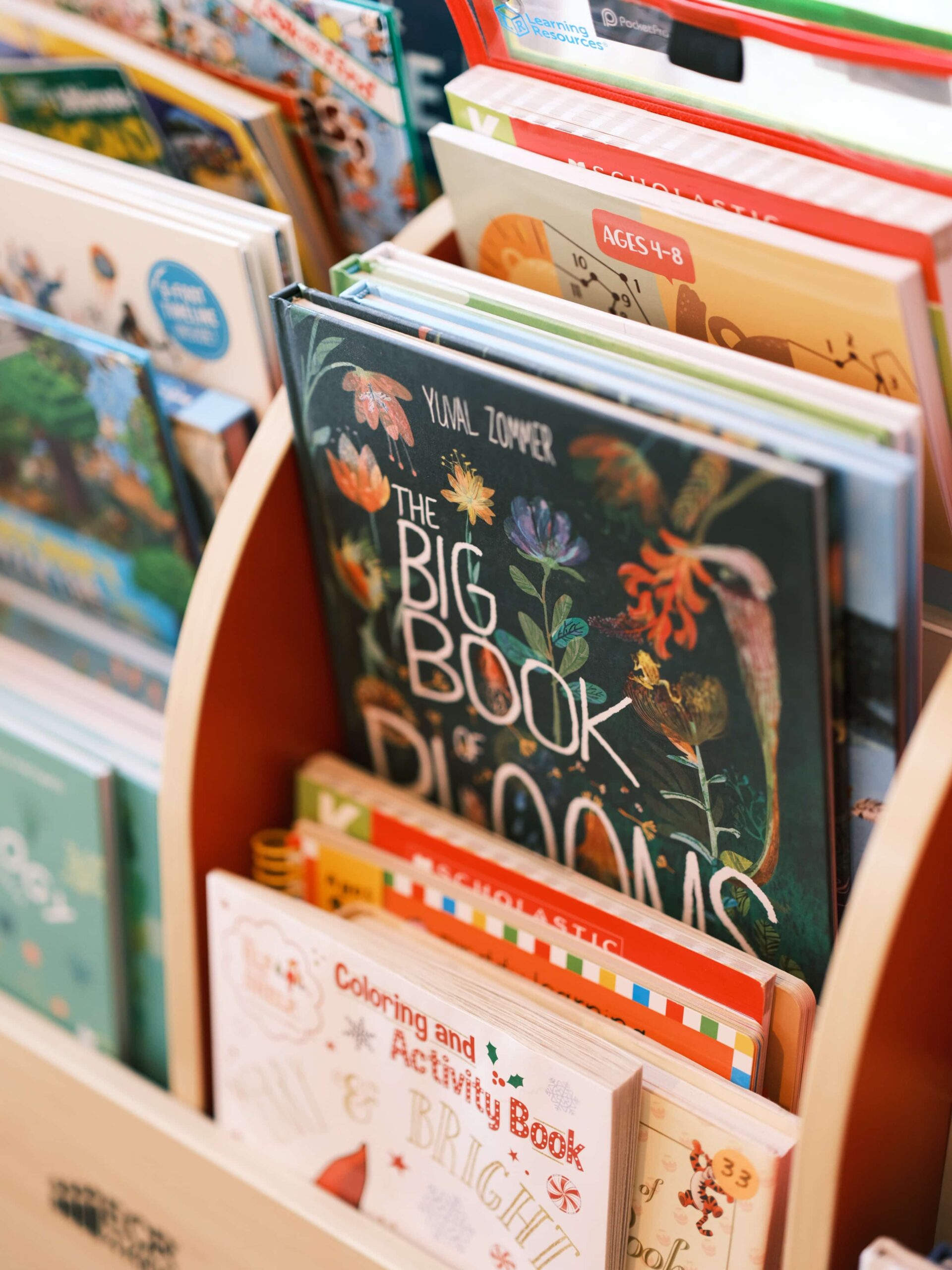Are you a bookworm at heart? Do you love getting lost in a good story? If you answered yes, chances are, you want your child to develop an unshakeable love for the written word as well. Today’s post is all about developing literacy skills in preschoolers so they become strong readers.
The fastest way to kill a love of learning is to turn things into drills ← don’t do this!
Around here, I am not a fan of worksheets, flash cards, or apps. I just don’t see the point when our 3-6 year olds should be playing, using all of their body (not just sitting in a seat), and having fun. One of my favorite books about teaching literacy skills is all about activities that educators should be leveraging that incorporate our kids’ hearts, hands, and minds.
Any teacher worth their salt will tell you that gamifying learning is where the magic happens. Yes, there are aspects of the learning process that will be straightforward and cannot be dressed up. But, the way in which literacy skills are practiced on an ongoing basis after the introduction of the core lesson can and should be fun!
Without further ado, here are 8 ideas for developing literacy skills in preschoolers:
- Read together: Reading aloud to your child is one of the best ways to build their literacy skills. Pick age-appropriate books that are interesting to your child and take turns reading pages.
- Play word games: Play games like “I Spy” or “Rhyme Time” to help your child develop their vocabulary and phonemic awareness.
- Write letters and draw pictures: Encourage your child to write letters and draw pictures to friends and family members. This will help them practice their writing and reading skills.
- Have a word of the day: Choose a new word each day and teach your child its meaning. Encourage them to use the word in a sentence throughout the day.
- Create a reading nook: Set up a cozy corner in your home with pillows, blankets, and books. Encourage your child to spend time there reading independently.
- Play dress-up: Encourage your child to dress up as their favorite character from a book and act out the story.
- Sing songs and recite rhymes: Singing songs and reciting rhymes helps develop phonemic awareness and language skills.
- Make a scrapbook: Collect pictures, stories, and other materials that interest your child and create a scrapbook together. This will help your child develop their storytelling skills and encourage them to read and write.
Teaching solid literacy skills early on also acts as a form of gifted education. Your kids will learn so much once they start reading to learn, and there is no limit on how much they can absorb and research on their own while they wait for peers who are still learning to read. In many districts, 3rd grade presents another opportunity to enter into the G&T program, so letting your child have space to stretch and grow while solidifying her literacy skills is a strong strategic move.
Hold onto your reading glasses, folks, let me end with this: the science of reading has shown that this beloved pastime is not just enjoyable, it’s also good for our brains – young and old alike! Turns out, reading isn’t just a way to pass the time without spending more $$$ than you wanted to (please don’t tell my husband about my latest Target run).
It’s also a surefire way to give your brain a good ol’ workout. And guess what? You don’t need a large house or a gazillion-dollar contraption to reap the benefits. All your child needs is a compelling book and a cozy spot to snuggle up and lose themselves in. Happy reading, brainiacs!

